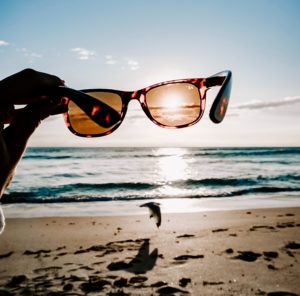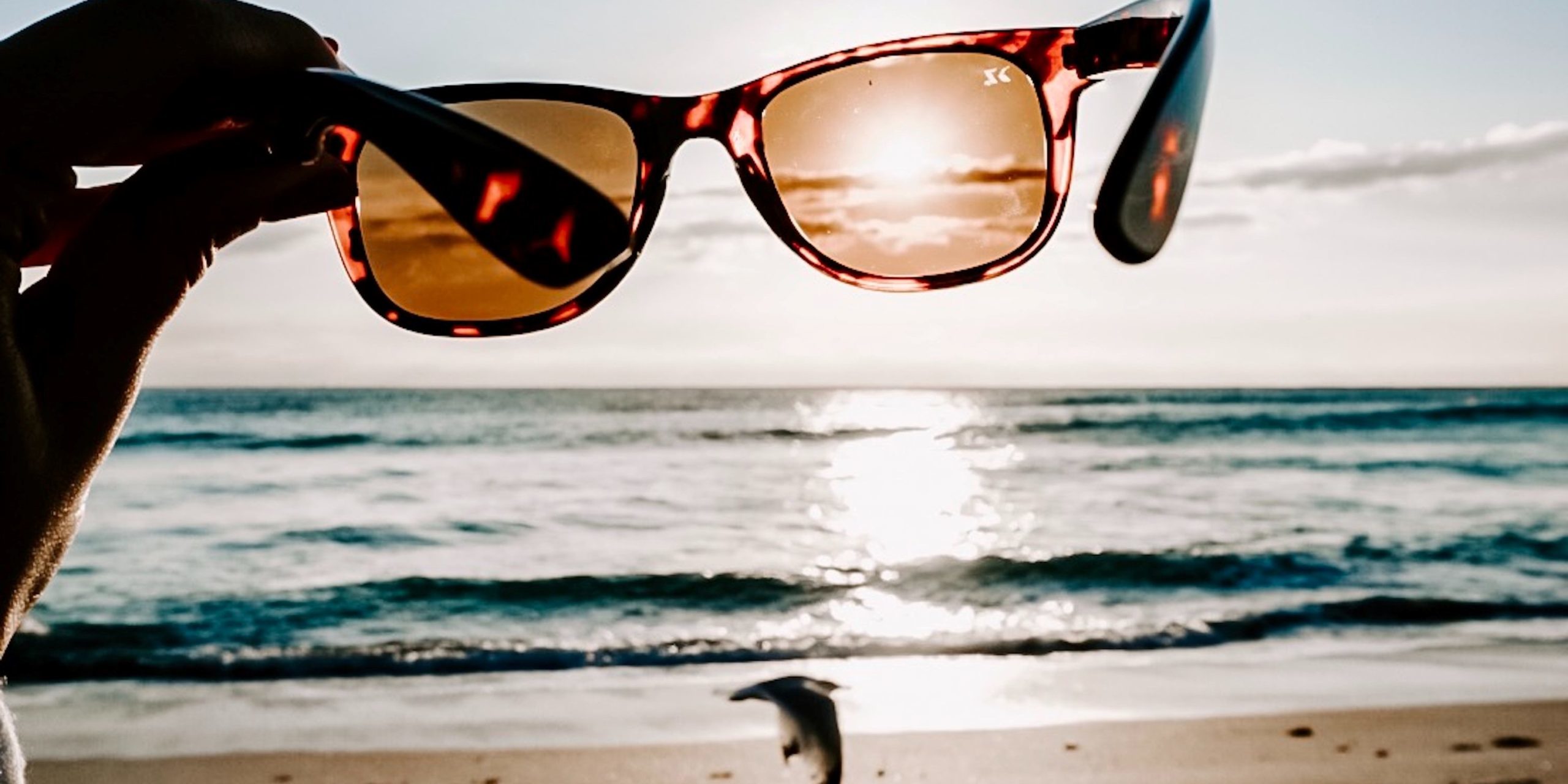 When we think of sun-related damage, we often think about our skin, but the sun’s ultraviolet rays also pose a threat to our eye health. As the summer heats up and the sun is in the sky longer, remember that also comes with increased exposure to ultraviolet (UV) rays. If you’re looking to buy a new pair of shades, pay attention to eye protection and comfort, not just style.
When we think of sun-related damage, we often think about our skin, but the sun’s ultraviolet rays also pose a threat to our eye health. As the summer heats up and the sun is in the sky longer, remember that also comes with increased exposure to ultraviolet (UV) rays. If you’re looking to buy a new pair of shades, pay attention to eye protection and comfort, not just style.
Research suggests that ultraviolet rays from the sun can harm your vision later in life. Excessive exposure to UV rays may cause damage to the area of the eye known as the macula which is responsible for transmitting pictures to the brain. There is evidence that UV damage may raise your risk for developing macular degeneration, one of the leading causes of age-related blindness, cataracts and ocular melanoma or eye cancer. The longer the eyes are exposed to UV rays, the greater the risk of developing these conditions. Furthermore, a lack of UV-blocking protection around your eyes may also lead to skin cancer in the sensitive skin surrounding your eyes.
Not all sunglasses are created equal. Some provide better protection than others. “The color or darkness and polarization of the lenses doesn’t matter as much, however a green or amber colored lens provides the clearest vision,” said Vincent P. Basilice M.D.P.C. FAAO, Ophthalmologist. The most important thing is that the sunglasses block 99 to 100 percent of the two basic types of ultraviolet rays that reach the earth’s surface—UVA and UVB. UVA rays penetrate deep into the dermis, the skin’s thickest layer, while UVB rays will usually burn the superficial layers of your skin. Both play a role in the formation of wrinkles, development of skin cancer, and pose a threat to the health of your eyes.
The price of your sunglasses doesn’t necessarily matter much either. Inexpensive glasses can get the job done just as well. Just look for the sticker or tag which should tell you the level UV of protection they provide. Choose the highest level of protection you can find. However, “the quality of the lens does minimize distortion and can provide the clearest vision. These lenses are usually more expensive, so I would recommend trying on a pair of sunglasses at the store to make sure you have the clearest vision,” Dr. Basilice said.
Another factor to consider is lense size. The bigger the better! If your lenses are smaller you may still be exposed to scattered rays coming in from all sides. Larger sunglasses will offer more protection by blocking more UV rays. Try to find frames that fit close to your eyes and contour to the shape of your face.
The next time you’re heading out to enjoy the summer sun, don’t forget to grab your sunglasses – they’re like sunscreen for your eyes. Also remember to put on your SPF (and of course reapply!) and consider wearing a wide-brimmed hat. Not only will it provide additional protection to your eyes but will also help cover any skin that your sunglasses and sunscreen don’t cover.

